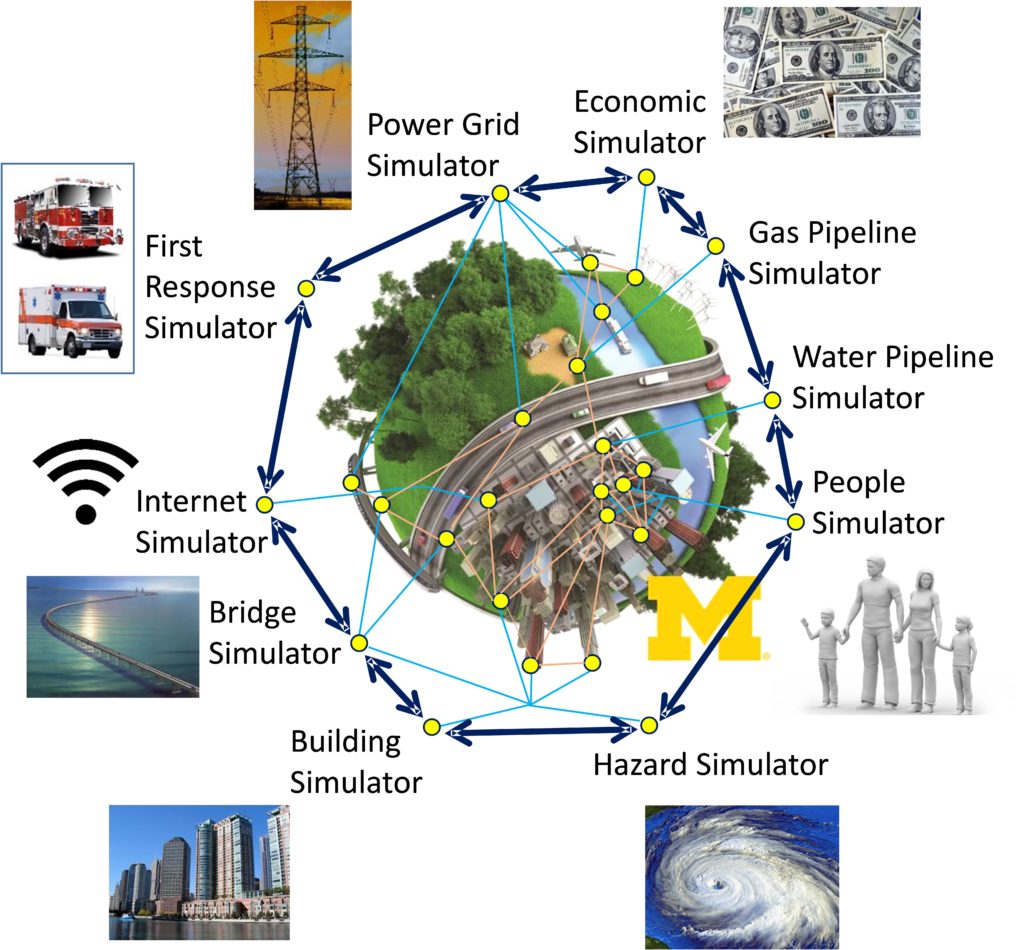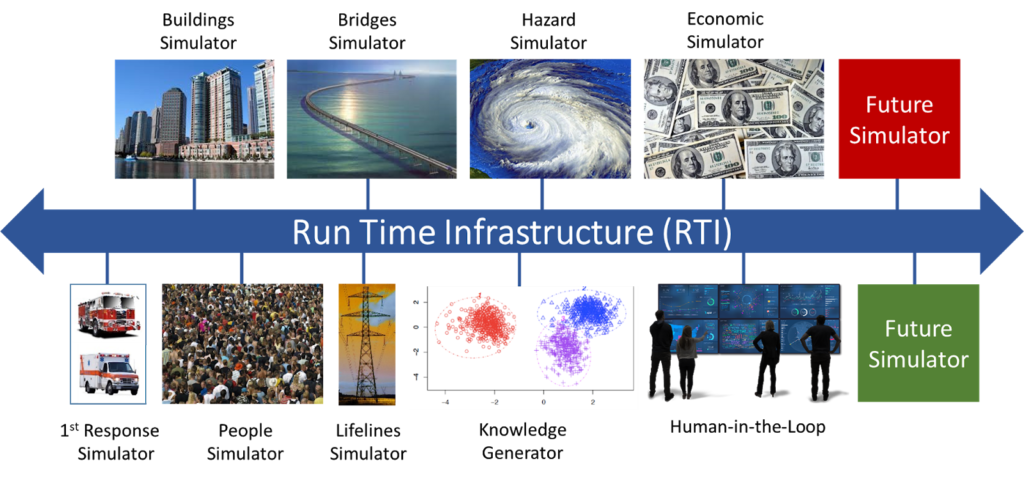Project ICoR (Interdependencies in Community Resilience) is funded by the US National Science Foundation’s Office of Advanced Cyberinfrastructure (OAC) under grant CRISP TYPE II – 1638186.
Extreme natural hazards, such as severe earthquakes and hurricanes, can trigger intricate inter-dependencies between the critical infrastructure systems of society, including the built environment (e.g., buildings and bridges), elements of social organization (e.g., social power and cohesion), and institutional arrangements (e.g., policies, politics, economics, and disaster mitigation). Such inter-dependencies can adversely influence community resilience, i.e. the ability to recover from an extreme event, usually measured in terms of loss of life and economic cost. As shown in Figure 1, our objective is to develop a computational framework that allows researchers from different natural hazards research sub-fields to link their computational models together to study the effects of infrastructure inter-dependencies on community resilience. In particular, our focus is on the inter-dependencies that arise between infrastructure robustness, social organization, and policy in the context of community resilience. Infrastructure robustness, which is the ability to respond favorably to the demands of extreme events (e.g. so that a building does not collapse during a severe earthquake), derives from policy. It directly impacts social organization and both play a role in determining casualty rates. Casualty rates, in turn, influence future policy.
Vision:
We aim to have a transformative impact on the broad fields of disaster science and engineering. By using computational modeling as a common language to link disparate disciplines, our objective is to develop a new computational framework that will open the door for researchers to collaborate in new ways. The ability to seamlessly interface with other models with minimal effort will foster entirely new collaborations between researchers who do not traditionally work together, enabling as-of-yet unimagined studies within and contributions to the multi-hazards engineering and disaster science fields.

This project is supported by the United States National Science Foundation (NSF) through grant 1638186 (CRISP Type 2: Interdependencies in Community Resilience (ICoR): A Simulation Framework). Any opinions, findings, conclusions, and recommendations expressed on this site are those of the project team members and do not necessarily reflect the views of the NSF.



